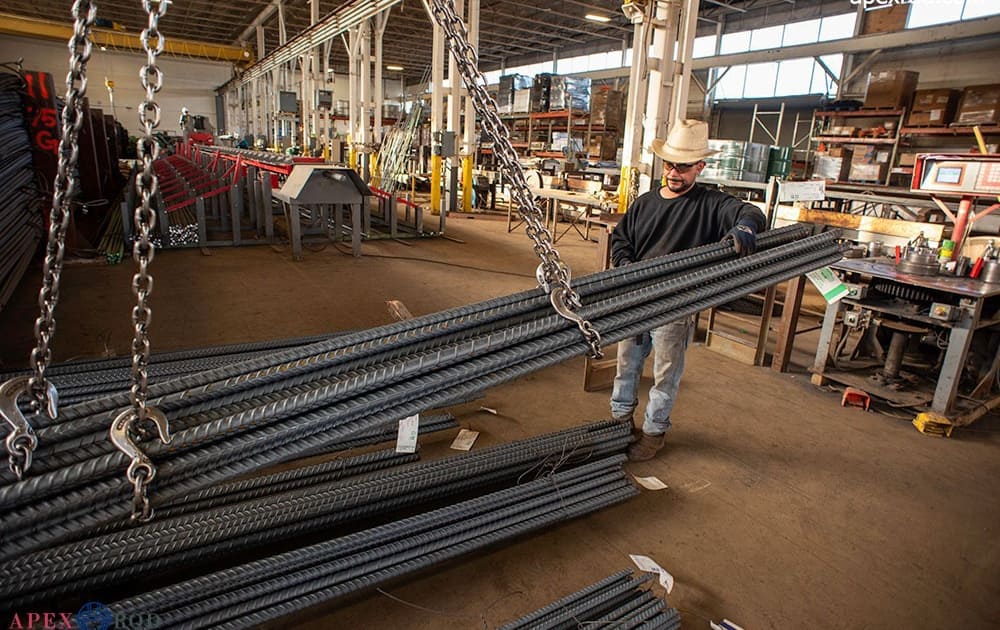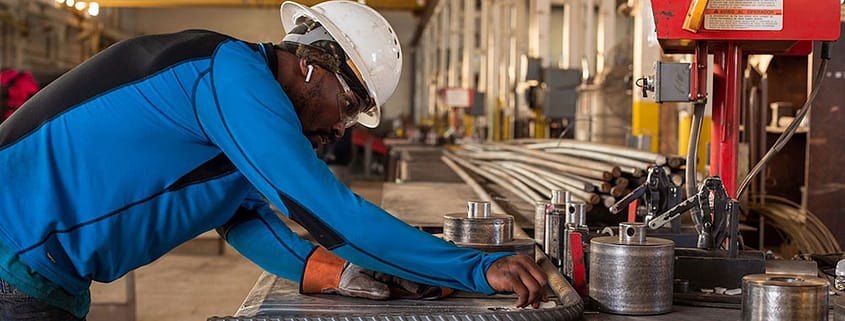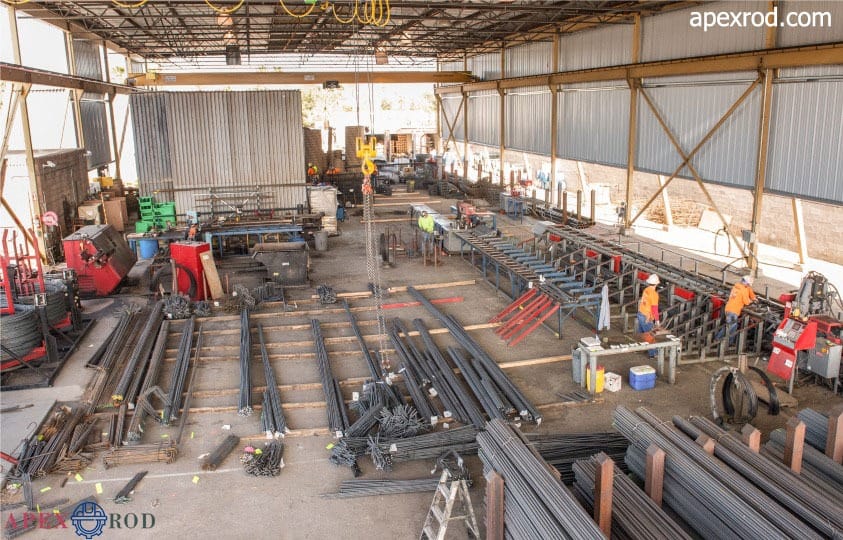Rebar Fabrication: The Backbone of Modern Construction
In the expansive and ever-evolving world of modern construction, the reinforcing bar, commonly known as rebar, plays a crucial yet often underappreciated role. This steel bar is fundamental in constructing robust and long-lasting structures, essentially shaping the skeleton of our urban landscapes. Our comprehensive exploration dives deep into the intricacies of rebar fabrication, shedding light on the significant technological advancements that have transformed rebar manufacturing. This article aims to provide a thorough understanding of rebar’s importance in construction, its fabrication process, and the industry’s future, highlighting ApexRod‘s significant contributions and leading position in this essential field.
The Critical Role of Rebar in Construction
Rebar’s essential function in construction is to reinforce concrete, which is inherently strong under compression but weak in tension. Embedding rebar within concrete enables the composite material to effectively withstand both compressive and tensile forces, a critical requirement for the structural integrity of buildings and infrastructure projects. This harmonious combination of concrete and rebar is pivotal in the construction of modern skyscrapers and bridges, facilitating their ability to endure various environmental stresses. The strategic use of rebar not only enhances safety and durability but also broadens architectural possibilities, allowing for taller, more innovative structures in our evolving urban landscapes.
The Process of Rebar Fabrication
Rebar fabrication is a highly specialized process, essential in the construction industry, involving several detailed steps to produce steel bars that precisely meet construction requirements. The process starts with steel billets, large blocks of steel, which are first heated to high temperatures. This heating makes the steel malleable, preparing it for further shaping. Once adequately heated, these billets are processed through rolling mills, where they are stretched and molded into lengthy rebar rods.
These rods, now in their preliminary form, are transported to the cutting section. Here, they are meticulously cut to specific lengths, tailored to suit the diverse needs of various construction projects. This cutting process demands accuracy to ensure that the rebar fits flawlessly within the intended concrete structure.
Following cutting, the rebar undergoes bending. Specialized machines bend the rods into an array of shapes like loops, hooks, or spirals, essential for the rebar to offer effective support within different parts of a concrete structure, such as foundations, columns, or beams.
Some complex structures require the rebar to be welded into more intricate configurations. This welding is performed with precision, maintaining the rebar’s strength and integrity. The final step involves a thorough quality inspection of the fabricated rebar. Each piece is examined to ensure structural integrity and perfect alignment for seamless integration into concrete structures. This process is vital for providing necessary reinforcement exactly where needed, crucial for the stability and durability of modern buildings and infrastructure.

Technological Evolution in Rebar Manufacturing
The manufacturing of rebar has undergone a technological revolution, significantly transforming its fabrication. Today’s rebar production heavily relies on automated machinery and computer-aided design (CAD), crucial in streamlining processes and ensuring precision. These advancements facilitate the customization of rebar, allowing it to meet specific needs of diverse construction projects. This shift in manufacturing is critical in addressing the increasing complexity of architectural designs and construction demands. It represents a significant step forward in the industry, aligning production capabilities with the evolving requirements of modern construction, thereby enhancing both efficiency and quality in building and infrastructure development.
Quality Assurance in Rebar Fabrication
Quality is the cornerstone of rebar fabrication. Each batch of rebar is subject to stringent quality checks, including tensile strength tests, bend tests, and chemical composition analysis. These tests ensure that the rebar meets or exceeds industry standards and can reliably be used in critical construction applications. Additionally, modern rebar is often coated or treated to prevent corrosion, further extending the life of the concrete structures it reinforces.
Sustainability in Rebar Manufacturing
Sustainability is gaining prominence in the rebar industry, with eco-friendly practices taking center stage. The use of recycled materials in rebar production, along with energy-efficient manufacturing processes and waste-minimizing strategies, exemplifies this green shift. These sustainable practices play a dual role: they conserve valuable resources and significantly reduce the environmental impact associated with construction projects. By adopting such approaches, the rebar industry not only aligns with global environmental conservation efforts but also contributes to the creation of more sustainable and ecologically responsible construction practices, reflecting a growing awareness and commitment to environmental stewardship in the sector.
Customization and Flexibility in Rebar Fabrication
Customization is a key aspect of rebar fabrication. Construction projects often require rebar in specific lengths, shapes, and sizes, and fabrication facilities must be equipped to meet these custom demands. This flexibility is essential for projects with unique architectural features or specific engineering requirements. Customization extends beyond mere shaping; it involves understanding the specific needs of a project and delivering rebar solutions that contribute to the structural and aesthetic goals of the construction.
ApexRod: A Leader in Rebar Supply
At ApexRod, we stand out when it comes to quality, precision, and reliability in rebar supply. With a commitment to excellence, we offer a comprehensive range of rebar products that cater to diverse construction requirements. Our advanced manufacturing and fabrication processes ensure that each rebar product adheres to the highest standards of quality and performance. Our dedication to customer satisfaction, combined with our technical expertise, makes us a preferred choice in the rebar industry. For more information about our offerings, visit Steel Rebar.
The Future of Rebar Fabrication
The trajectory of rebar fabrication is headed towards an integration of cutting-edge technologies and eco-friendly practices. Future advancements are anticipated to reshape the industry, with innovations like 3D printing, AI-driven design, and alternative materials playing pivotal roles. This evolution will not only revolutionize rebar fabrication but also align it with the changing landscape of the construction industry. As construction methods and demands evolve, the role of rebar fabrication becomes increasingly crucial, continuously adapting to meet new challenges and seize emerging opportunities, thereby ensuring its relevance and effectiveness in the construction sector’s future.
Conclusion
Rebar fabrication and manufacturing are pivotal elements of the construction industry. The processes involved in producing rebar are becoming increasingly sophisticated, aligning with the evolving demands of modern construction. ApexRod epitomizes this progression, leading the way in providing top-tier rebar solutions. For a comprehensive look at our products and services, visit our website now.



Leave a Reply
Want to join the discussion?Feel free to contribute!